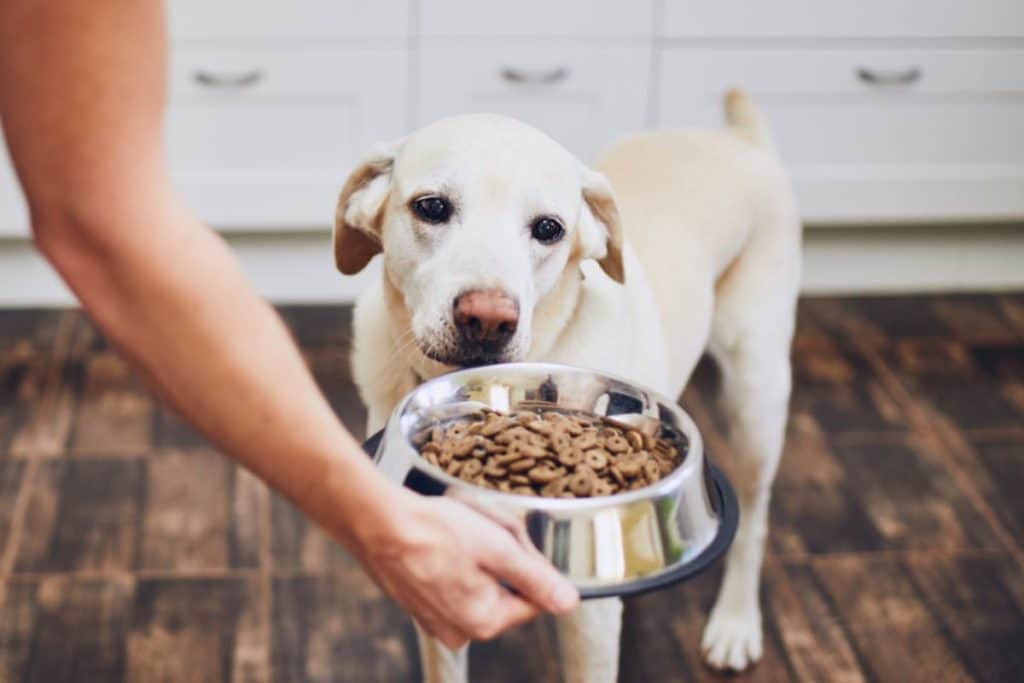Cinnamon is a common household spice we all love putting in our food, especially in the UK. So, it makes sense that we want our dogs to enjoy the same bliss we do.
That said, canine nutrition is extremely complicated from a newbie dog parent’s perspective. Of all the things, chocolate is a poison to dogs!
While the situation is more nuanced, here’s the short answer if you’re in a hurry:
Cinnamon is a non-toxic spice that dogs can eat in moderate amounts. A dash of cinnamon here and there is generally considered safe and beneficial for their overall health. However, it shouldn’t be inhaled or consumed in large amounts as it could negatively impact a dog’s health.
Important Note: While cinnamon isn’t bad or toxic for dogs, it’s often paired with nutmeg in most food items. And nutmeg is highly toxic for our canine companions. So exercise caution and limit your dog’s cinnamon consumption to homemade items or dog-friendly cinnamon treats.
Is Cinnamon Bad for Dogs?
Generally, there are two types of cinnamon. Understanding the subtle differences between these two types is more than just a matter of taste. Each type possesses unique properties and oil content, which are crucial when considering cinnamon as a part of a dog’s diet.
- Ceylon, often called “true cinnamon,” is milder, with a delicate sweetness, hailing from Sri Lanka and parts of India.
- Cassia cinnamon, the type more commonly found in our supermarkets (UK), is known for its robust, fiery flavour, originating from China and Indonesia.
Dogs can consume cinnamon safely depending on the type (Ceylon or Cassia) and quantity.
Ceylon cinnamon (milder) is typically safer for dogs in small amounts. In comparison, Cassia cinnamon (spicier and more common in the UK) contains higher levels of coumarin, which can harm dogs if consumed in large quantities.
In large quantities, cinnamon can cause low blood sugar and irritate your dog’s mouth or stomach.

Does Cinnamon Have Health Benefits For Dogs?
1. Blood Sugar Regulation and Weight Control
It is as true as it is surprising. Cinnamon can help with obesity and weight control because it’s great at helping with blood sugar regulation.
For dogs prone to a little extra padding, a sprinkle of cinnamon can aid in keeping their weight in check, ensuring they stay as agile and sprightly as a fox.
2. Joint Pain Relief
Cinnamon is a god’s gift to dogs suffering from arthritis or other forms of joint pain, thanks to its anti-inflammatory properties. It acts like a soothing balm, easing the creaks and aches of age or injury.
3. Promoting Heart Health
This spice is not just a culinary delight but also a heart’s ally, ensuring this vital organ beats strong and steady, much like a drummer in a band.
4. Antioxidant Benefits
Cinnamon is rich in antioxidants that improve brain function. It’s crucial for ageing dogs due to cinnamon’s ability to catch free radicals and slow down dementia or other age-related problems.
Note: You can only reap these benefits successfully if you give cinnamon to your dog in appropriate quantities. So don’t take any decision without consulting your vet first.
How to Safely Feed Cinnamon to Your Dog?

1. Avoid Overconsumption
Moderation is key when it comes to cinnamon. Overindulging can lead to low blood sugar, causing further damage to their overall health.
2. Allergic Reactions
Though rare, some dogs might react to cinnamon like a bee sting, with allergies popping up unexpectedly. It’s essential to monitor your dog’s reaction and proceed cautiously, like testing the waters before a swim.
3. Keep Away From Pregnant Dogs
Expecting dogs should steer clear of cinnamon. It’s best to play it safe, avoiding potential complications like a cautious sailor avoiding rough seas.
4. Choking Hazard and Inhalation Risks
Cinnamon sticks might look tempting for a chew, but they pose a choking hazard. Similarly, inhaling cinnamon powder can irritate the respiratory tract.
5. Beware of Nutmeg
Nutmeg, often paired with cinnamon, is toxic to dogs. So ensure you don’t feed them any cinnamon food item that includes nutmeg.
How Much Cinnamon is Safe for Dogs?
Generally, a pinch of cinnamon (approximately 1/8 of a teaspoon) per day is safe for most dogs, particularly those of medium size. However, even this small amount might be too much for smaller breeds or dogs with specific health conditions.
When doling out cinnamon to your dog, consider it a seasoning rather than a main ingredient.
The “safe quantity of cinnamon” will vary based on several factors, such as the dog’s size, breed, and overall health.

For instance, larger breeds may handle more cinnamon than their smaller counterparts, but it’s still wise to err on the side of caution. Dogs with pre-existing conditions like diabetes or those prone to allergies may require even more careful consideration.
Always consult your vet before introducing cinnamon or new food into your dog’s diet.
Best Ways to Include Cinnamon in a Dog’s Diet
- One safe and popular way is to sprinkle some cinnamon over their regular dog food. It’s a simple method, like adding a dash of spice to a classic British stew for that extra zing.
- For the bakers, consider making homemade dog treats with a cinnamon twist. Numerous dog-friendly recipes are available that use cinnamon, such as baked sweet potato slices with a light cinnamon dusting or homemade biscuits with a pinch of cinnamon.
Remember, these treats and cinnamon additions are just that – treats. They should not replace your dog’s regular, balanced diet.
Frequently Asked Questions (FAQs)
1. Does cinnamon make dogs sleepy?
Cinnamon does not typically make dogs sleepy because it doesn’t have any sedative properties that would induce drowsiness. However, every dog is unique, and reactions can vary. If your dog appears unusually sleepy after consuming cinnamon, it’s wise to consult a vet.
2. Can dogs chew cinnamon bark?
Ideally, you shouldn’t give your dog cinnamon bark to chew on. While cinnamon in small quantities can be safe, the bark presents a choking hazard and can also irritate the mouth and stomach. Ingesting large pieces could also lead to upsetting their stomach.
3. Can cinnamon cause a dog to throw up?
Generally speaking, cinnamon can cause a dog to throw up, especially if consumed in large quantities. Or if the dog has a sensitive stomach. Cinnamon is a potent spice, and too much can irritate a dog’s digestive system, leading to vomiting or diarrhoea.
4. How can I tell if my dog has eaten too much cinnamon?
Signs that your dog may have eaten too much cinnamon include coughing (if inhaled), vomiting, diarrhoea, or signs of mouth or stomach irritation. In more severe cases, you might notice changes in heart rate, low blood sugar, or liver disease symptoms.
If you observe any of these signs or suspect your dog has ingested a lot of cinnamon, immediately seek veterinary assistance.





